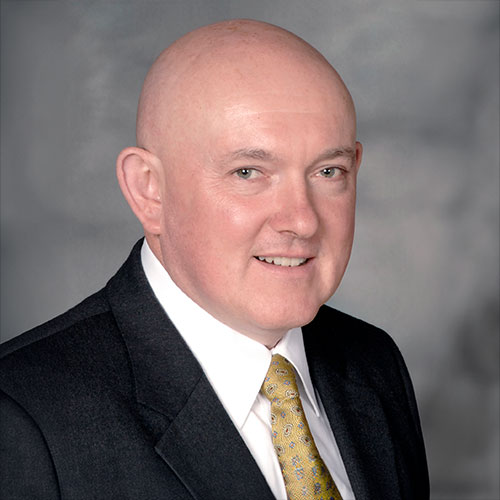
Global Perspectives: Claudia Aguirre on community development, high school dropouts and immigration
Claudia Aguirre is president and chief executive officer of BakerRipley, an internationally renowned community development organization that has transformed neighborhoods across Houston for more than 112 years. As one of the largest nonprofits in the country, BakerRipley serves 600,000 people annually. It delivers programs and services to children, families and seniors through workforce centers, senior facilities, community centers, charter school campuses and Head Start locations.
Aguirre joined BakerRipley in 2010 as vice president of community-based initiatives, later becoming senior vice president and chief program officer. She led the operation of six community centers, directed the expansion of the BakerRipley community school district and enhanced programs in civic engagement, small business incubation and immigration services. As superintendent of schools, she guided the development of the BakerRipley New Neighbor School, a nationally recognized school for newly arrived immigrant and refugee children.
She came to her current role after directing large-scale, community engagement initiatives while working in the government, education and nonprofit sectors for 20 years. Before joining BakerRipley, she served under two Houston mayors and led the design and development of youth programs, including one of the first alternative schools for at-risk students.
Aguirre, who has received numerous education and community awards, was named “Woman of the Year 2019” by Solo Mujeres magazine and was among the Houston Business Journal’s “2018 Women Who Mean Business.” She is currently a Class C director for the Federal Reserve Bank of Dallas and a member of the board of directors for the Alliance for Strong Families and Communities.
The Dallas Fed recently hosted Aguirre as part of the Bank’s Global Perspectives speaker series. This series was launched at the beginning of 2016 with the objective of bringing leaders from the worlds of business, academia and policymaking to the Dallas Fed to share their insights on leadership, and global, national and regional developments.
Aguirre and Dallas Fed President Rob Kaplan discussed the origins of BakerRipley, its mission, the problem of high school dropouts and the contributions of immigrants. The following are excerpts from their conversation, edited for clarity, and presented by topic.
On BakerRipley’s mission:
Aguirre: We are a community development organization, and we have 1,600 team members. We operate on a $530 million budget, and we have 70 locations across the Houston region.
But our story starts in the early 1900s, when there was an influx of immigrants coming to Houston. One day, a teacher found a four-year-old sleeping on the steps of our schoolhouse, and she quickly found out that the four-year-old was waiting for her mom. There was no child care; there wasn't any social welfare program at the time. And so, she decided to change that, and in February of 1907, a group of 12 Houston women met at the home of Alice Graham Baker, former Secretary of State Jim Baker’s grandmother, and that was the birth of BakerRipley.
Since then, we have ensured that Houston’s most vulnerable communities have an opportunity to be a part of this great economic engine in Houston. Our job is to share their stories and to help others understand their narrative. We humanize low-income and vulnerable communities.
We define them through people, and not ZIP codes, because here's what we’ve learned: When you put a name and a face to a challenge, then it becomes solvable. So, our programs and services, they change depending on the region's challenges, but our work is to support the three universal truths we all want for our families. We want to earn more, we want to learn more, we want a place to belong. Earn, learn and belong.
Just two years ago, we renewed that commitment to our vulnerable communities and created this bold vision to crush the inequities in our communities. We run the gamut from early childhood to workforce development.
Let’s just take our education group. Our education group covers early childhood, a charter school that does kindergarten to eighth grade, and we have a new neighbor school that supports recent immigrant students, and we have an adult-based education program that really supports any adult that left [school] without getting a diploma or a GED.
Then we have our workforce solutions, our workforce development programs. We are a contractor of the Workforce Development Board here in this [Houston) region, and the mantra is, we support 200,000 people who want to get a job, keep a job or get a better job. We work in partnership with so many in this region. We have nonprofits, we have other providers of workforce development, our community colleges, our ISDs [independent school districts]. It just takes an entire group of everyone trying to really lift people up the socioeconomic mobility [ladder].
On the high school dropout problem:
At one end of the continuum, we have one out of six children not ready to go into kindergarten. And then [on] the far other side of the continuum, we have 750,000 young adults who left the education system without a high school diploma or GED, and they’re working low-skilled jobs.
There are a lot of challenges and inequities, but I believe that the education system is the root of that. You look at how we are preparing people in our future for jobs, and we're not equipping them. We know that [as] industry recovers, we know that it's going to need critical skills, and we're just not ready to have our children take on those mid- and high-skilled jobs that our aging population is leaving. So, we have no pipeline ready to take on those jobs.
We see various reasons for children dropping out of high school, but I think the thing we see right now is the need to work. Think about the 15-, 16-, 17-year-old whose parents are having trouble finding a job, are undocumented, or just trying to figure out how to start a small business. Well, the children have to drop out of school to help and bring income to the household. I think that's really the key—the child that we're really looking to support. I mean this is our future, right? The Hispanic and Black kids living in our low-income communities, they’re sitting in a ZIP code where few resources are there, and that is our future workforce.
And once they drop out, it’s very, very unlikely that they will return. They find a low-skilled job, and it works for a while until they get a family, and then what happens when you get a family? Then you have to get a second job, and then a third job, and next thing you know, you are working two to three jobs, working hard to stay poor.
You need some type of high school diploma or GED most likely to get into a credential or training certification program. And here's the thing: This challenge is not insurmountable. We know where the kids are. We have community colleges that have the dollars and resources. We have the entities, organizations in this region; we just have to embrace them and understand that the challenges have just been mounting for them, and we just need to remove all of those barriers. We have the training, we can get the children, we can get them trained and educated. We’ve just got to work together.
The GED is the first step. If we can get the almost 1 million people without a diploma, if we could get them into a GED program, the technical training certifications available are limitless. We can get them into a six-week program and then a two-year program. And we will see a difference between making $7 an hour and $23 an hour, and the difference of between six months and two years.
On immigration:
Immigration is necessary to the nation's economic growth and recovery. Both documented and undocumented immigrants are important to fill the high-, the mid- and the low-skilled jobs. Here in Houston, 29 percent of the jobs are held by immigrants; 9 percent of those are held by undocumented immigrants.
Our undocumented immigrants are contributing $500 million in local and state [tax] revenues. They represented $9 billion in spending power. When we think about the future in Houston, over a quarter of a million children have at least one undocumented parent. So, immigration, schools, kids, workers, the economy—to us they are all interconnected and dependent on each other.
And so, at BakerRipley, our work is really to support the journey of all immigrants regardless of where you came from. We say, “Whether you cross the river, the ocean or the railroad tracks, if you're here, and you work hard, you belong.”
About the Author
Mark A. Wynne
Wynne is vice president and associate director of research in the Research Department at the Federal Reserve Bank of Dallas.
The views expressed are those of the author and should not be attributed to the Federal Reserve Bank of Dallas or the Federal Reserve System.




